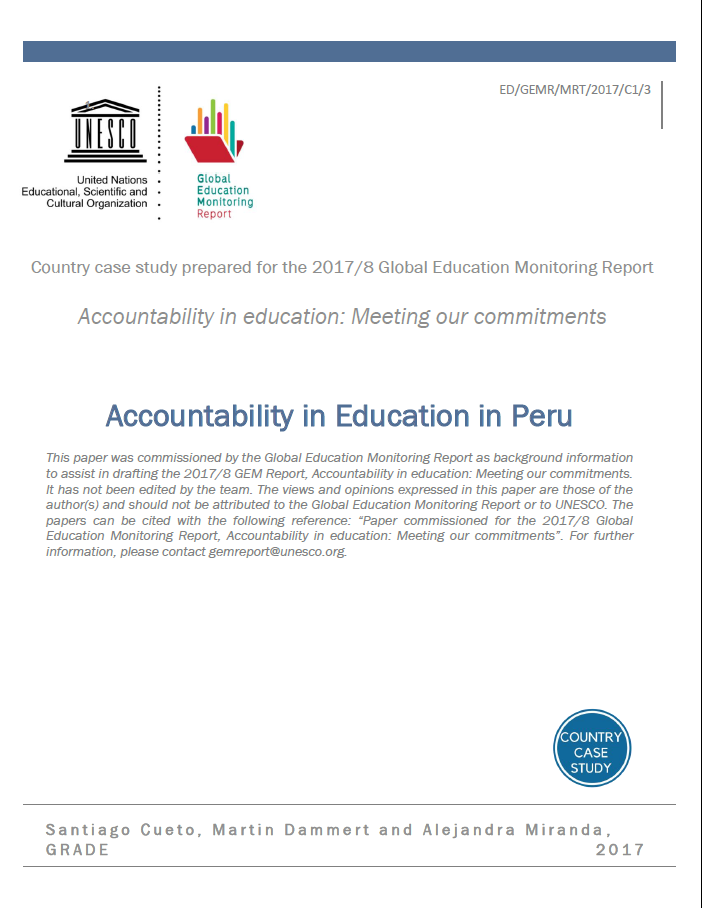Accountability in Education in Peru
Abstract
In Peru, in Spanish, “accountability” is often understood as assuming responsibility over specific public resources and providing information on how well they have been spent and what the results have been. Thus, being accountable is closely linked with being “transparent” with decisions made at every level of the education system. Therefore, information regarding the public budget, investments, remunerations and meetings held by public officersshould be shown and made public by law (Congreso de la República, 2002). Hence, accountability represents both “control” and “surveillance”, in the hopes to guarantee ethical habits while avoiding corruptionand maximizing benefits for the population. According to Peru’s education system, accountability focuses on the civil society’sduty to judge the quality of the service being provided (Congreso de la República, 2003). In addition, in Spanish, “accountability” often leads toputting “pressure” on students, teachers, schools and parents in the hopes of improving students’ educational outcomes and achievements (De La Vega, 2015). Moreover, it is frequently used as an instrument to manage and control the public concern regarding educational opportunities(Mbiti, 2016).In Peru, public officers are accountable for their actions.Therefore, they may be investigated after leaving their post, with a possibility that they will go to jail or be banned from public service if evidence of corruption, misappropriation of funds or other crime is found by the judiciary system or the National Audit Office (called Contraloría).

